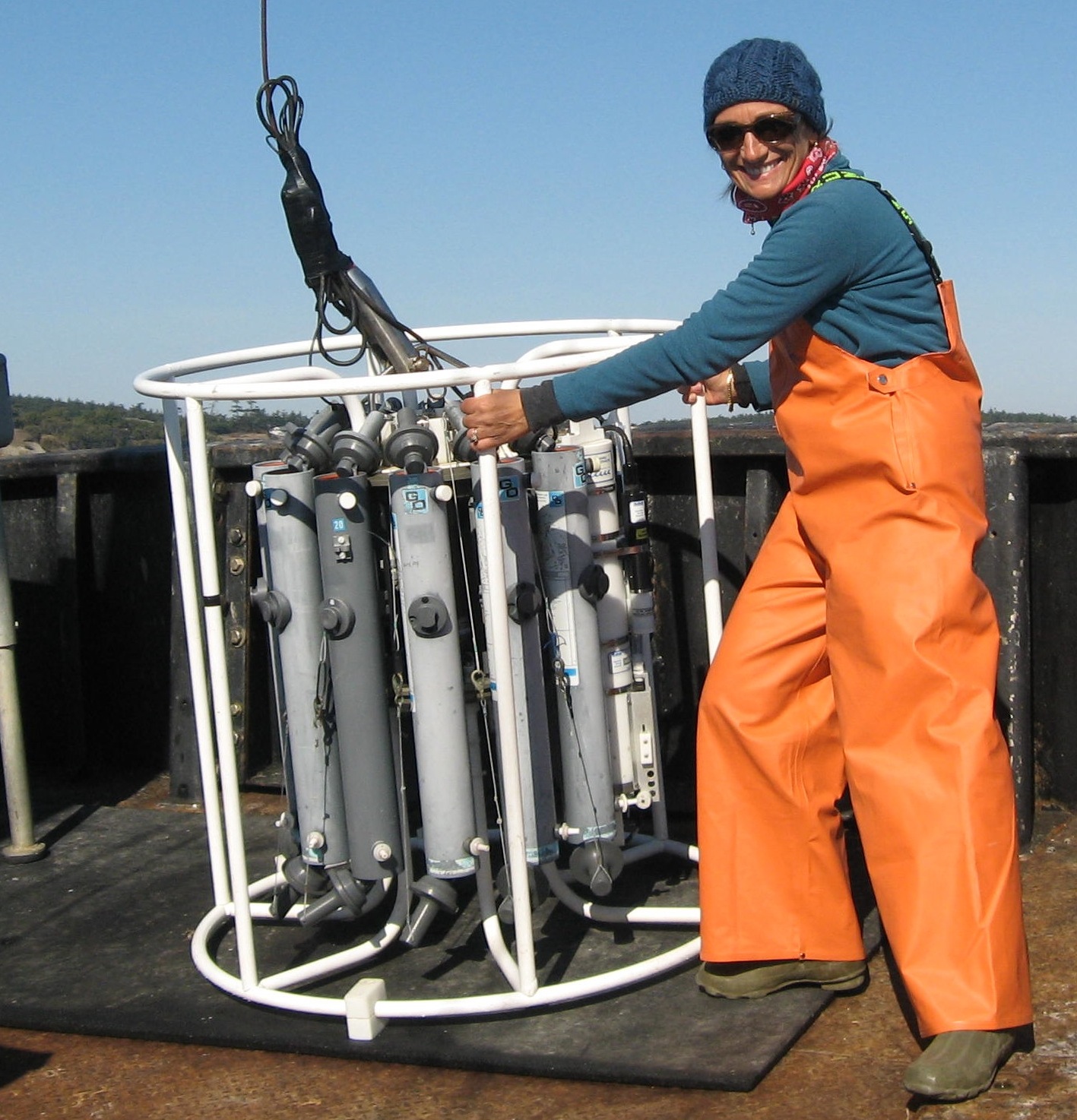
Course Information
Autumn Quarter
Ocean 492 (15 credits)
Dr. Jan Newton
University of Washington
Dr. Matthew Baker
North Pacific Research Board
Dr. Becca Guenther
University of Washington
Dr. Israel (Alex) Marquez
University of Washington
Dr. Mike Sigler
Shoals Marine Laboratory
Now in its 20th year, the Pelagic Ecosystem Function (PEF) apprenticeship, uses the natural laboratory of the San Juan Archipelago to investigate the workings of a unique pelagic (open water) ecosystem. Friday Harbor is an ideal place for pelagic ecosystem studies, where inputs from oceanic realms and major river systems are mixed by powerful tidal currents, creating an oceanographically complex habitat that supports a diverse community of plankton, fishes, seabirds, and marine mammals. For this apprenticeship, we use university research vessels to examine the patterns, interactions, and linkages between components of this complex marine ecosystem, to understand how oceanographic processes shape the spatial and temporal patterns of open water biological communities. Our goal is to gather and analyze data to document ecosystem drivers and trends and to teach you methods you will use throughout your career. The core of this program will be an independent but integrated research project, which we will help you design and implement.
Our apprenticeship features formal instruction, independent fieldwork, and a collaborative learning environment. For the first two weeks, the instructors provide an overview of basic concepts and field and laboratory techniques. Throughout the rest of the quarter, we work together to examine spatial and temporal variability in the transitional fall season for six pelagic ecosystem components: physical oceanography, chemical oceanography, phytoplankton, zooplankton, forage fish, and apex predators (birds and mammals). You will learn about and be instructed in investigative methods for all areas, but select one for the focus of your own research. Working as part of a cooperative research team, you will have the opportunity to collect and analyze field and laboratory data. You will also learn statistical and analytic approaches to interpreting data, and gain valuable experience in reporting your findings in a professional manner, verbally and in a written scientific paper.
This apprenticeship is a unique opportunity to spend a quarter conducting meaningful field research in a stimulating but supportive environment. You will also have the opportunity to learn from professional scientists and to work collaboratively with students from other institutions, teaching methods you have learned and facilitating peer-to-peer learning. Your work, building on the findings of previous apprentices, will contribute to a valuable data set that will enable us to better characterize system dynamics, explore causal mechanisms, distinguish prevailing patterns and interactions, and monitor long-term changes in the region.
Enrollment limited to 12 apprentices. UW students earn “W” credits in this writing-intensive course.